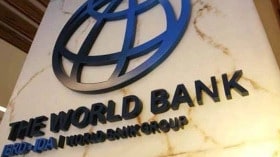
The World Bank has lowered its growth forecast for India’s economy in the current fiscal year to 6.3%, citing concerns over the impact of the COVID-19 pandemic and the slow pace of reforms. The forecast is a significant reduction from its earlier prediction of 8.3% growth, made in January this year.
In its latest South Asia Economic Focus report released on Tuesday, the World Bank said that the pandemic’s devastating second wave, which has hit India hard, had led to a slowdown in economic activity. The report also highlighted structural challenges facing the country, such as weak investment, a struggling financial sector, and a fragile job market.
“The ongoing second wave of COVID-19 infections has posed additional challenges to India’s health system and economy,” said Hartwig Schafer, World Bank Vice President for the South Asia Region. “While the economy has started to recover, a return to pre-pandemic growth rates is uncertain.”
India’s economy had been on the path to recovery after a sharp contraction of 7.7% in the last fiscal year, but the second wave has stalled progress. The country’s GDP growth in the October-December 2020 quarter had rebounded sharply to 0.4%, after two consecutive quarters of contraction. However, the second wave, which began in April this year, has led to localized lockdowns and disrupted economic activity, particularly in the services sector.
The World Bank report highlighted that the services sector, which accounts for a significant share of India’s GDP and employs a large number of people, has been particularly hard hit by the pandemic. The report noted that the sector’s recovery is likely to be slow, as consumer confidence remains weak, and people continue to avoid non-essential activities due to the fear of infection.
The report also pointed out that India’s financial sector remains fragile, with banks burdened by non-performing assets (NPAs) and weak capital adequacy ratios. The report called for measures to improve the financial sector’s health, such as recapitalization, the resolution of NPAs, and the strengthening of regulatory frameworks.
The World Bank report also highlighted the need for structural reforms to address long-standing challenges facing the Indian economy, such as weak investment and a struggling job market. The report called for measures to improve the ease of doing business, reduce regulatory burden, and increase transparency and accountability in the public sector.
The report noted that India had made progress in some areas, such as the implementation of the Goods and Services Tax (GST) and the introduction of the Insolvency and Bankruptcy Code (IBC). However, it said that more needs to be done to address the country’s structural challenges and promote sustained growth.
The World Bank report’s findings are in line with those of other international organizations, such as the International Monetary Fund (IMF), which recently lowered its growth forecast for India to 9.5% for the current fiscal year, down from its earlier prediction of 12.5%.
The Indian government has taken several measures to support the economy, such as fiscal stimulus packages, monetary policy easing, and sector-specific measures. However, some experts have called for more decisive action to address the challenges facing the economy.
“The government needs to take bold and decisive measures to address the structural challenges facing the economy,” said Rajiv Kumar, Vice Chairman of the government think tank NITI Aayog. “We need to address the weak investment climate, the struggling financial sector, and the fragile job market.”
Despite the challenges facing the economy, some experts remain optimistic about India’s long-term growth prospects, given its large and growing middle class, a young and skilled workforce, and a favorable demographic profile.
“India has the potential to become a global economic powerhouse if it addresses its structural challenges and implements reforms that promote sustained growth,” said Shaile.
Read More on World Bank









